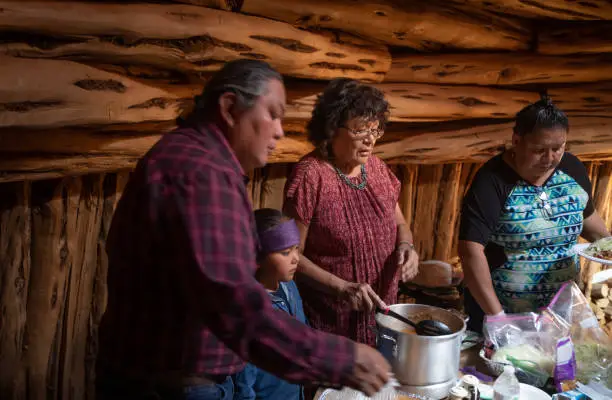When pastors are called to serve their communities, one of the challenges they may face is securing stable and affordable housing. Housing grants for pastors provide essential financial assistance to help clergy members and their families find a place to call home, free from financial worry.
These grants are designed to ensure that pastors can focus on their ministries, knowing that their housing needs are met. In this comprehensive guide, we’ll explore what housing grants for pastors are, how they work, where to find them, and the application process, all while offering helpful tips, statistics, and resources to boost your success.
What Are Housing Grants for Pastors?
Housing grants for pastors are financial aid programs specifically designed to help church leaders cover housing expenses. These grants can cover costs such as rent, mortgage payments, utilities, and even home repairs.
The purpose of these grants is to relieve the financial strain that pastors may experience when trying to balance their ministry responsibilities with their family’s housing needs.
Unlike loans that require repayment with interest, grants are generally non-repayable funds. This no-strings-attached nature makes them highly appealing, as pastors often work on modest salaries and cannot shoulder additional debt.
According to a recent survey by the Pew Research Center, more than 60% of clergy report feeling financial stress related to housing costs, making these grants even more critical.
Why Housing Grants Are Essential for Pastors
Housing is not just a roof over one’s head; it’s a cornerstone of stability that allows pastors to serve their communities effectively. Without secure housing, pastors might face distractions and stress that can detract from their primary mission of spiritual guidance and community service.
Some key reasons why housing grants are essential include:
- Financial Relief: Pastors often juggle multiple roles, from sermons to community outreach, leaving little time to manage home finances. Grants alleviate this burden, allowing pastors to focus on their calling.
- Community Stability: A pastor with stable housing can consistently serve their congregation, leading to stronger community ties and better pastoral care.
- Reduced Turnover: Churches benefit when pastors have stable living conditions, as it reduces turnover rates and maintains continuity in ministry and community programs.
How Do Housing Grants for Pastors Work?
Housing grants for pastors generally work in one of two ways: either through a one-time lump sum payment or through ongoing assistance. Some grants are awarded for specific purposes, such as purchasing a home or renovating a pastor’s residence, while others provide long-term support for rent or mortgage payments.
Types of Housing Grants
- Lump Sum Grants: These grants provide a one-time payment that can be used for specific needs like a down payment, security deposit, or significant repairs.
- Monthly Stipends: Some programs offer monthly stipends to cover part or all of the housing costs, providing long-term relief.
- Project-Based Assistance: Grants that are tied to specific projects, such as building a new parsonage or renovating an existing one, fall into this category.
Key Features of Housing Grants
- Non-Repayable: Unlike loans, grants don’t require repayment, making them a unique opportunity for financial support.
- Eligibility Criteria: Each grant has specific eligibility requirements such as income limits, location restrictions, and denominational affiliation.
- Application Process: The process may vary, but it typically includes researching available options, gathering required documentation, and submitting a well-prepared application.
According to HUD’s Annual Report, housing stability significantly improves an individual’s ability to maintain employment and contribute to community programs, reinforcing why these grants are a crucial element in supporting pastors.
Where to Find Housing Grants for Pastors
Locating the right housing grant involves exploring multiple channels. Here are some key sources for finding housing assistance:
1. Churches and Religious Organizations
Many churches and religious groups recognize the financial sacrifices their leaders make. They often maintain funds or have partnerships designed to assist pastors with housing. For instance:
- Parsonage Programs: Some denominations provide a parsonage (a house provided by the church) as part of the pastor’s compensation package.
- Church-Based Relief Funds: Some larger congregations or dioceses have dedicated relief funds for pastors experiencing financial hardships.
A conversation with a church’s administrative staff or financial committee might reveal little-known local programs. It’s also beneficial to network with other clergy members who may have insights on where to secure financial assistance.
2. Government Programs
Various government programs offer housing assistance that pastors can leverage:
- HUD (Department of Housing and Urban Development): HUD provides several programs for low-income individuals, including grants for community development and housing.
- Visit the HUD website to explore programs like Section 202 Supportive Housing for the Elderly, which could potentially benefit senior pastors.
- USDA Rural Development Housing Assistance: This program supports individuals in rural areas with home purchase and improvement loans.
- More information can be found on the USDA Rural Development page.
These programs often require applicants to meet specific income thresholds and residency criteria, but they are worth exploring for comprehensive support.
3. Private Foundations
Numerous private foundations have a vested interest in supporting clergy and community leaders. Here are a few noteworthy foundations:
- The Lilly Endowment: This foundation supports research and programs that enrich the lives of communities. Their funding initiatives sometimes include housing projects for clergy.
- Check out The Lilly Endowment for application guidelines and specific funding opportunities.
- National Clergy Housing Grant Fund: This fund is dedicated to helping pastors secure housing. They offer grants that can be used for purchasing a home, paying off debts related to housing, or making essential repairs.
- More details at their website (if available).
Foundations often have very specific goals for their grants, so tailoring your application to fit their mission statement can improve your chances of success.
4. Faith-Based Organizations
Organizations that focus on supporting ministry work can be excellent sources of housing grants:
- Clergy Support Ministries: These ministries provide direct support, including housing assistance, to pastors in need. They may offer emergency grants for immediate housing crises.
- The Pastoral Housing Assistance Program: A nonprofit dedicated to supporting pastors with their housing needs through grants and counseling.
These organizations often offer additional resources such as counseling and financial planning advice, which can be invaluable as you navigate your application and long-term financial health.
Eligibility for Housing Grants
Eligibility for housing grants can vary widely, but there are common requirements that most programs share:
- Active Ministry: You must be currently serving as a pastor or clergy member, with documented proof of your role. This could be in the form of a letter from your church, ordination certificates, or church membership records.
- Income Limitations: Most housing grants are designed for pastors with limited financial resources. Programs may require detailed income statements and tax returns to determine eligibility.
- Residency Requirements: Some grants may be location-specific, especially those funded by local governments or regionally focused foundations.
- Denominational Affiliation: Certain grants are reserved for pastors of specific denominations. For example, a Catholic housing grant might only be open to clergy in the Catholic Church.
It’s important to thoroughly review the eligibility guidelines for each grant to ensure you meet the qualifications before applying. This can save time and increase your success rate.
The Housing Grant Application Process
Applying for housing grants as a pastor typically involves several well-defined steps:
1. Research
Identify which housing grants are available in your area or through your denomination or religious group. Use online resources, church bulletins, and conversations with fellow clergy to compile a list of potential grants. Websites like GrantWatch and Foundation Center can help locate relevant funding opportunities.
2. Gather Documentation
Most grant applications require a range of supporting documents. These might include:
- Proof of ordination and active ministry (e.g., ordination certificate, a letter from your church).
- Financial statements and income proof (latest tax returns, salary slips).
- A detailed explanation of your housing needs (e.g., why you require a new home, funds for repairs).
- Letters of recommendation from your church or community leaders.
Having these documents organized and ready before you start the application will streamline the process and reduce stress.
3. Write a Compelling Narrative
A strong grant application often includes a personal narrative that explains your situation. Be honest about your financial challenges, and clearly articulate how the grant will make a difference for you and your community. Highlight your commitment to your congregation, community service, and how stable housing will enable you to better serve others.
4. Submit Application
Once your documentation is ready and your narrative is refined, submit your application according to the grant guidelines. Pay close attention to deadlines and specific submission instructions. Some programs may require online submission, while others might need physical copies mailed in.
5. Follow Up
After submitting your application, it’s crucial to follow up with the grant provider. Confirm that your application was received and ask about the timeline for decisions. A polite follow-up can demonstrate your seriousness and keep you informed about the status of your request.
The Benefits of Housing Grants for Pastors
There are several key benefits to applying for housing grants for pastors:
- Financial Relief: Housing grants help relieve financial stress, allowing pastors to focus on their ministry without worrying about how to afford housing. This reduces burnout and lets leaders concentrate on community service.
- Stability for Pastors and Their Families: Secure housing provides peace of mind for pastors and their families, allowing them to concentrate on their work and provide a stable environment for their loved ones.
- Opportunities for Community Impact: When pastors are relieved of financial worries, they can devote more time to serving their communities, leading to greater social and spiritual impact. According to a study by the National Institute of Building Sciences, stable housing leads to improved community engagement and lower crime rates.
Success Stories: Inspiration and Encouragement
Nothing inspires more than hearing success stories from those who have walked the path before you. Here are a couple of real-life examples:
a) Pastor John’s Journey
Pastor John of a small rural church was facing mounting financial challenges due to an aging home in need of repairs. His small congregation couldn’t afford the necessary renovations. After applying for a housing grant through the USDA Rural Development Program, Pastor John received a lump sum that allowed him to repair the roof, install modern heating, and make the home safe for his family. This stability has allowed him to dedicate more time to community outreach and church growth, rather than constant worry about his living conditions.
b) Pastor Sarah’s Renovation
Pastor Sarah, serving an urban congregation, found her family home—intended as a parsonage—dilapidated and unsafe. By applying for a grant from the National Clergy Housing Grant Fund, she received funding to renovate the property, ensuring it became a welcoming and safe environment for her family and community events. Her story highlights how effective these grants can be in transforming lives and sustaining long-term community service.
The Impact of Housing Stability on Ministry
Housing stability significantly affects a pastor’s ability to perform their duties. According to Pew Research, nearly 45% of clergy members have reported that housing concerns directly impact their work effectiveness. Moreover, a study by the Urban Institute indicated that community leaders with stable housing are 30% more likely to engage in community development activities, showing a direct correlation between housing support and active community involvement.
Tips for a Successful Grant Application
- Be Thorough in Your Research: Use multiple sources to find grants, including government databases, religious organization newsletters, and word-of-mouth recommendations from fellow pastors.
- Tailor Each Application: Customize your application to each grant’s requirements. Highlight how you meet their specific criteria and how the funds will directly benefit both you and your community.
- Seek Guidance: Don’t hesitate to ask others who have successfully secured housing grants for advice. They can provide valuable insights and may even share templates or sample letters.
- Use Professional Resources: Consider subscribing to resources like the Grant Writing Academy Newsletter for expert tips, strategies, templates, and tools. These resources can drastically improve your application quality and increase your success rate.
- Maintain Persistence: The application process can be competitive and sometimes discouraging, but persistence pays off. Keep applying to different sources and refining your approach with feedback received.
Tools
- Grant Writing Academy Newsletter: Subscribe to the newsletter to receive up-to-date tips, strategies, templates, and tools that enhance your success rates in applying for housing grants and other funding. Subscribe here!
- Online Grant Databases: Websites like Grants.gov and Foundation Directory Online list numerous grant opportunities, some of which specifically target housing for clergy.
- Local Community Foundations: These organizations often administer small grants and can provide personalized advice tailored to your region.
The Role of Grant Writing in Securing Housing
A well-crafted grant application is more than just filling out forms—it’s storytelling. Your application should not only list facts but weave a compelling narrative that shows why you, as a pastor, deserve this support, how it will impact your congregation, and what changes positive housing will bring to your community.
By honing your grant writing skills, you not only increase your chances of receiving the grant but also build a valuable skill set that can attract other forms of funding for community projects, church programs, or educational initiatives.
Final Thoughts
Securing housing grants for pastors can be a game-changer for those dedicated to serving their communities while ensuring their families have a stable living situation. With careful research, a compelling application, and persistence, pastors can find the financial support they need to secure housing without the pressure of financial strain.
Remember, you are not alone in this journey. Many resources, organizations, and fellow clergy are available to assist you. By tapping into these networks and making use of tools like the Grant Writing Academy Newsletter, you can elevate your chances of success.
Subscribe Now to Enhance Your Grant Writing Success!
To access exclusive resources and strategies that will take your grant writing to the next level, subscribe to the Grant Writing Academy Newsletter today! Receive expert tips, downloadable templates, and insider knowledge to help you secure housing grants and other funding opportunities.
Subscribe here and join a community of like-minded individuals who are passionate about making a difference through effective grant writing.
Happy grant writing, and may your efforts lead to a stable, comfortable home for you and your family, enabling you to serve your community even more effectively.
Additional Resources and Support
a) Expand Your Knowledge
The grant writing field is always evolving. Keep learning and improving your skills to stay competitive.
Recommended Resources:
- Request for Proposal Success: How to Write Proposals That Win: Learn the techniques and strategies to create standout proposals.
- Tech Startup Funding Secrets: Navigating Grants for Maximum Growth: Perfect for those in the tech sector looking to leverage grants for scaling.
- Grant Proposal Guide for Environmental Projects: Tailored for environmental initiatives seeking to secure impactful funding.
- The Ultimate Guide to Federal Grant Applications: Techniques for Success: Master the complexities of federal grants with actionable insights.
Explore More Books Here
b) Invest in Expert Guidance
Want to fast-track your growth and achieve even more success?
Join one of our mentorship programs for tailored advice and support:
Mentorship Programs:
- 3-Month Mentorship: The Foundation Builder: A short-term plan to refine your grant writing skills and win your first (or next) grant.
- 6-Month Mentorship: The Proposal Pro: Dive deeper into strategies, proposal reviews, and funding plans.
- 1-Year Mentorship: The Funding Champion: Build long-term success with comprehensive guidance, unlimited reviews, and exclusive resources.
C) Book a One-on-One Consultation
Sometimes you just need personalized advice to tackle challenges or fine-tune your strategy. Let’s work together to solve your unique grant writing challenges.





98jili https://www.98jilig.com